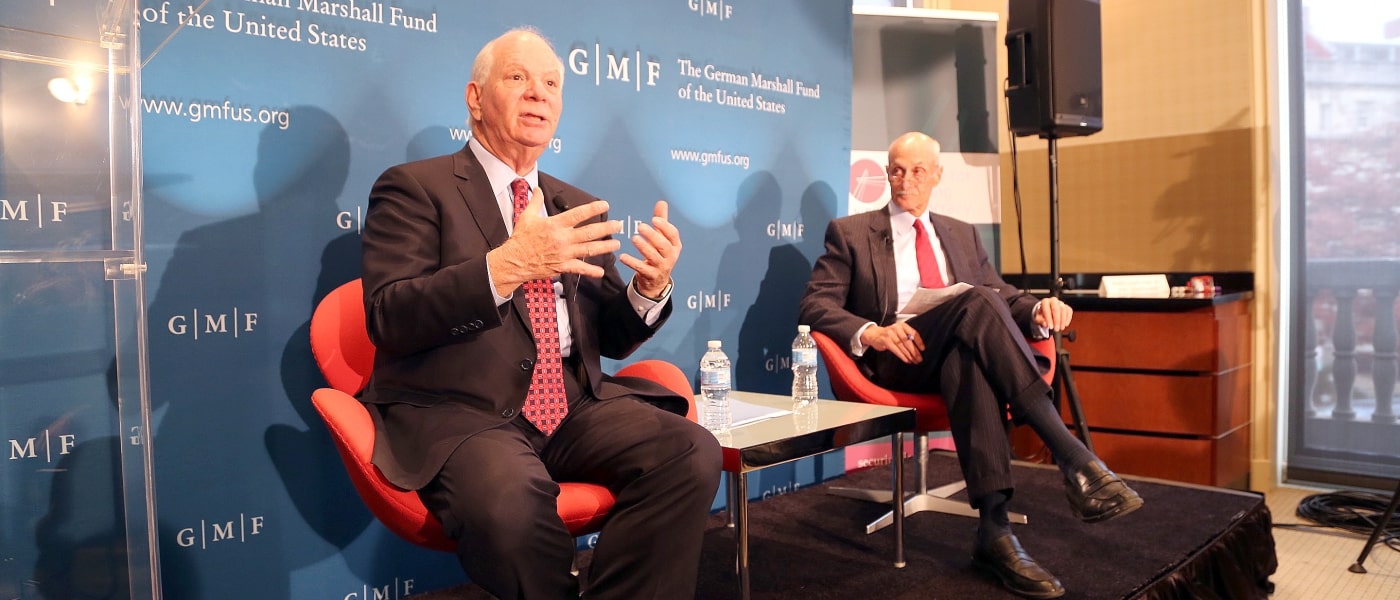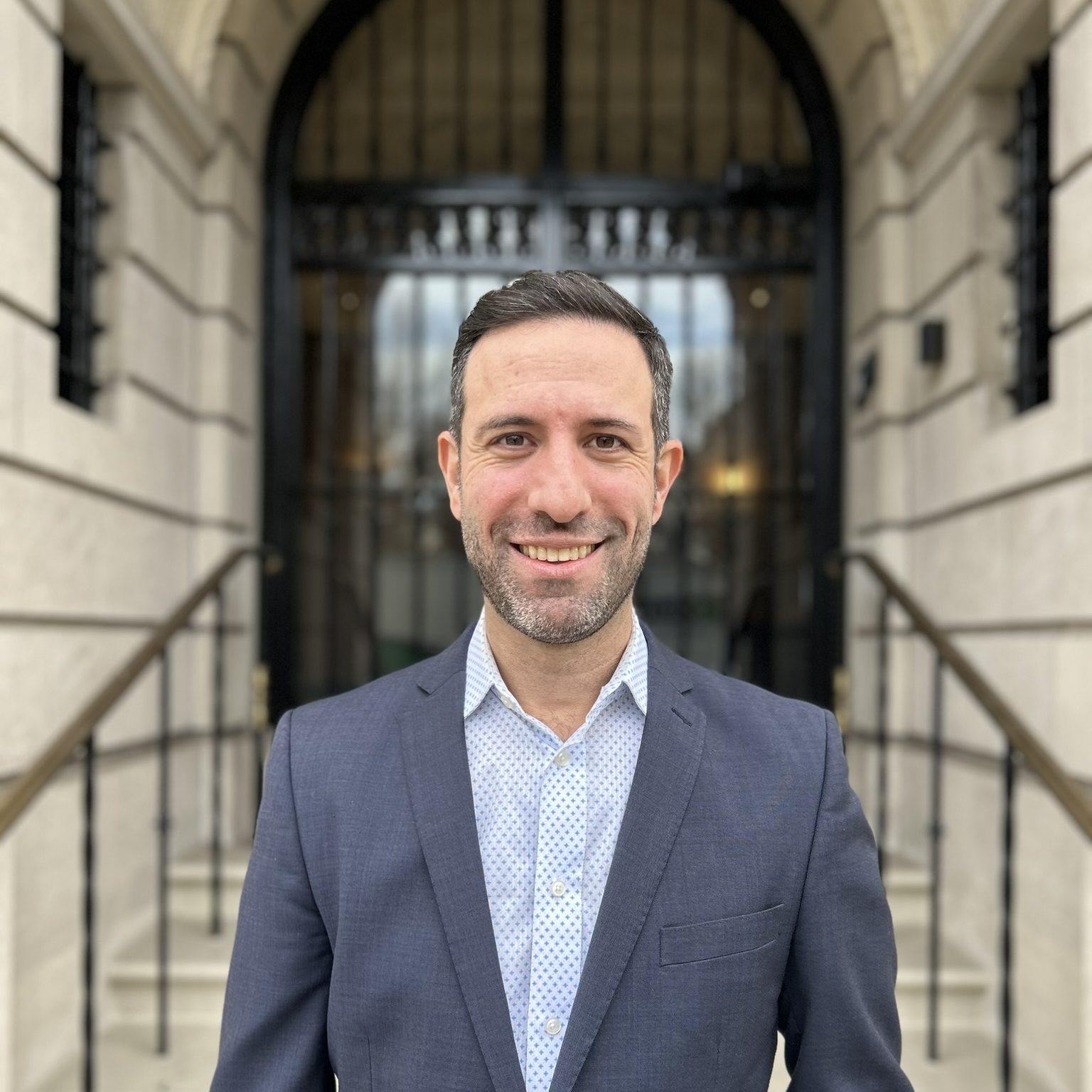On Wednesday, the Alliance for Securing Democracy hosted U.S. Senator Ben Cardin (D-MD), U.S. Congressman Will Hurd (R-TX), and former U.S. Secretary of Homeland Security Michael Chertoff for a discussion of Russia’s continued assault on democracies and how the United States — along with its European partners and allies — can effectively respond to Russia’s actions. For his part, Senator Cardin presented findings from a new minority staff report by the Senate Foreign Relations Committee titled, “Putin’s Asymmetric Assault on Democracy in Russia and Europe: Implications for U.S. National Security.” As the report acknowledges, liberal democracies like the United States have challenged Vladimir Putin’s ability to use military might, propaganda, and the repression of dissent to consolidate power behind the façade of restoring Russia to greatness. Thus, the report focuses on the various tools President Putin has employed — including, but not limited to, military aggression, disinformation, malign finance, organized crime, and social and religious leverage — to undermine democracy in 19 countries over the course of the past two decades. Cardin’s report makes policy recommendations for the United States government, including calling on it to improve coordination of all elements of United States policy and programming to counter and deter Russian hybrid threats, to expose and freeze the Kremlin’s illicit finance operations in the United States and Europe, and to strengthen global cyber-security defenses and norms.
As former Secretary Chertoff acknowledged, much of the public discourse concerning Russian interference has highlighted Russia’s use of disinformation to meddle in our elections; however, the Kremlin’s activities extend beyond just interfering in elections and encompass a comprehensive, asymmetric toolkit that exacerbates existing social divisions in our societies and aims to undermine democratic governments and institutions. Moscow, as a declining power, has opted for low-cost methods such as information warfare, hacking, political support for extremists groups, economic coercion, and illicit finance in an effort to undermine its perceived enemies in the West and create the perception that democracy is an inherently corrupt system.
In the United States, one of the greatest challenges we must face is the tendency to turn the Russian threat into a partisan issue.
In the United States, one of the greatest challenges we must face is the tendency to turn the Russian threat into a partisan issue. The Kremlin has taken steps to exploit this specific weakness by promoting conspiracy theories that sow deeper divisions along party lines, but we must not let these issues divide us. As Secretary Chertoff reminded us, “When we deal with adversaries we are Americans, rather than party members, and we have to remember that.”
What are the steps we must take to counter Russia’s ongoing assault on our democracy? First, Congress and the administration must acknowledge Russia’s attack on our democracy for what it is — a threat to national security — and send a clear message that the United States does not tolerate foreign interference in our democratic processes. America’s leaders must reach across party lines and the political divide to have a serious conversation about the tools that Russia continues to use against our political system. The administration needs to use its executive authorities to bolster America’s defenses against foreign interference. A successful response to this threat will also require bipartisan cooperation in Congress to pass legislation that closes legal loopholes and vulnerabilities in infrastructure that the Russians and other foreign actors exploit.
Second, the United States should ensure that this issue is being confronted at the federal, state, and local levels with coordination between all relevant government agencies and between private and public entities. As Representative Hurd stressed, “This is not a public sector-only issue,” and will require a larger community effort, incorporating the private sector, media, and academia. If we are to fully understand and effectively defend against malign Russian influence, then we must approach this issue from every angle. As ASD Co-Directors Laura Rosenberger and Jamie fly outlined in “Shredding the Putin Playbook,” “The asymmetric and cross-cutting nature of the Kremlin’s toolkit means that these issues don’t fit neatly within the purview of any one agency” and thus, a successful plan of action must be founded on collaborative, cross-disciplinary efforts.
Finally, the United States should coordinate our efforts with our European partners and allies, particularly through improved cooperation at NATO and between NATO and the EU, to counter this shared threat and defend the future sustainability of our democratic institutions and the principles that unite us. As Senator Cardin emphasized, the United States can draw many valuable lessons from our friends in Europe, specifically citing efforts by France, Germany, the Baltic states, and the Nordic countries that have mobilized their bureaucracies to respond to President Putin’s repeated attacks on democratic governments and institutions. What cannot be lost in this discussion, however, is that the effects of Russian interference extend far beyond the reaches of governments in the United States and Europe, and so should the responses.
The private sector and individuals can play key roles in fighting Russian attempts to sow discord and division in U.S. politics and civil society. As Congressman Hurd emphasized, we must become more adept at evaluating the source and reliability of online information. Parents and teachers should instill in their children the impulse to think critically about what they read, just as they teach them to avoid what Hurd referred to as “stranger dangers.” “We all know, don’t get into a car with a stranger,” said Hurd, “[so] why are you listening to a stranger on social media?”
While the Kremlin’s instruments of influence have embraced new technologies, the underlying methods are not new and continue to exhibit patterns that can be analyzed, exposed, and confronted. Our strongest defense going forward will be to acknowledge Russia’s actions as a threat to national security and the security of democratic governments across the transatlantic space; to implement a comprehensive, interagency strategy with full bipartisan support in Congress; and, to harness the expertise and strengths of the private sector and the nongovernmental sector to participate in a nationwide effort to address this national security threat.
The views expressed in GMF publications and commentary are the views of the author alone.





